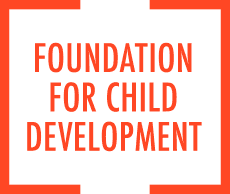https://www.fcd-us.org/2007-child-well-being-index-cwi-special-focus-report-on-international-comparisons/
This analysis compares the United States to the United Kingdom, Canada, Australia and New Zealand. By comparing the United States to other industrialized, English-speaking countries, the report provides a more accurate baseline for comparison than other international assessments of child well-being. These Anglophone countries share a common language, similar cultural heritage, as well as comparable political and economic cultures. The report assembles 19 key international indicators of child well-being within seven domains of social life.
Released at a July 17, 2007 event at the New America Foundation, 2007 Child Well-Being Index (CWI) Special Focus Report on International Comparisons finds that American children are generally in the middle of the pack in terms of their overall well-being; but there are serious deficiencies in key areas.
According to Dr. Kenneth Land of Duke University, the primary author of the report, No country outscores the United States on all domains of child and youth well-being, but our comparison of five Anglophone countries show deficiencies in U.S. child well being. This report highlights the need for continuing public and private sector efforts to support and enhance the well-being of children and youth living in households with limited economic resources in the United States.
The report finds:
* The percent of households without an employed adult is lower in the United States than in all comparison countries. However, poverty rates are higher in the United States than in all comparison countries.
* Canada, Australia, New Zealand and the United Kingdom have better outcomes than the United States in the Health domain. Relatively high rates of infant mortality and children who are overweight and obese disadvantage the United States in this domain.
* Teen birth rates in Canada, the United Kingdom, Australia and New Zealand are lower than in the United States. This indicator is a key figure in the Safety/Behavioral Concerns domain.
* The United States has a relatively high proportion of young adults who complete high school and obtain baccalaureate degrees. However, the proportion of children who attend preschool is lower in the United States than in all countries except the United Kingdom.
* 15-year old American students scored lower in mathematics and reading than their counterparts in all comparison countries on internationally administered standardized tests, leading to a last place finish in the Educational Attainment domain.
Past President Ruby Takanishi, President of the Foundation for Child Development, commented Children’s well-being in all countries rests on shared responsibilities among families, communities, and government. This Child Well-Being Index (CWI) analysis shows that Americans must find better ways to balance family and social responsibility for future generations. We have much to learn about how other countries achieve this balance. Our national security depends upon it.
According to David Gray, Director of the Workforce and Family Program at the New America Foundation, The study shows we do well in some areas, but we need to sharpen our focus to better address the challenges our children face. Parents and community institutions are doing well in serving our children, but policymakers need to do more to help our children get off to a good start.
